The Current Landscape of Faculty Development: Challenges and Opportunities
A large component of any academic professional development program is faculty development, as the success of education excellence primarily hinges on the effectiveness of educators. To maintain faculty vitality and commitment to their home institutions it is incumbent to offer faculty development opportunities. A systematic review by Steinert states the field of faculty development has grown substantially in the last 10 years. This webinar will review the field over the past 10 years. In addition, it will highlight the varieties of faculty development activities, formal and informal, short and longitudinal, and diverse design principles. There will be a focus on the need to build communities of practice in the workplace and foster participants passions with like-mined colleagues to share ideas and resources and work collaboratively on projects. The session will conclude with challenges of assessment of faculty development initiatives to assure accountability of oversees of programs and to support desired outcomes from all participants.
Recruiting, retaining and developing a diverse faculty
Congratulations! You’ve been promoted! Introducing the IAMSE Educator Toolkit
Educators in the health professions are busy people. We teach, assess learners, engage in educational leadership and administration, develop and assess curricula, advise and mentor students and colleagues, and conduct research. This IAMSE webinar will introduce tips and tools to help you build an outstanding educational portfolio that highlights the impact of your scholarly activities. We will explore how the IAMSE Educator Toolkit helps you to document your work in a format that is clear and easily interpreted by department chairs, promotion committee members, and other institutional leaders involved in appointment, promotion, and tenure decisions.
Innovative faculty development programs: two case studies
The Healthcare Leadership Academy was founded 11 years ago at the University of Alabama at Birmingham. The program is a collaborative program of the Collat School of Business and the School of Medicine and involves participants from all of the health-related schools (e.g. Nursing, Public Health, etc.) and from throughout the UAB Medicine clinical enterprise. It was designed to expose these emerging leaders to fundamental leadership concepts relevant to healthcare leaders and to provide overview of UAB Medicine. The curriculum involves a weekend kick-off session that utilizes the physical challenges of a high-ropes course and is followed by a series of day-long sessions that occur the monthly for the remainder of the 8- month-long program. Participants interact with senior leaders in a small group setting and hear presentations on a variety of leadership-related topics. They also work in small project groups to develop proposals for initiatives that would add benefit to UAB Medicine and the program concludes with a formal presentation of these proposals.
Several of the project proposals have been implemented as actual programs and the participants are particularly appreciative of time with the senior leaders in an intimate setting. Other outcomes of the program were presented in a comprehensive review of the program published in 20141. The most durable valuable outcome of the program are the relationships that the participants form with each other during the experience. Therefore, a recent addition was the creation of a private social media network of both past and present participants with the thought of enhancing this social network by creating connections between all alumni of the program.
In this portion of the webinar, I will discuss the model for the Educational Scholar’s Program, a national educator faculty development program. I will start off with a description of the need that led to the program’s development and the program’s goals, objectives and guiding principles. I will describe the curriculum, both online and in-person components as well as programmatic outcomes
Reference:
1. Savage, G.T., Duncan, W.J., Knowles, K.L., Nelson, K., Rogers, D.A. and Kennedy, K.N., 2014. Interprofessional academic health center leadership development: the case of the University of Alabama at Birmingham’s Healthcare Leadership Academy. Applied Nursing Research, 27(2), pp.104-108.
Beyond See One, Do One, Teach One: Developing Graduate Students and Medical Trainees as Medical Educators
This session will focus on building the skills of graduate students, medical students, and graduate medical education trainees as medical educators. The webinar will present two distinct yet parallel methods (graduate students and medical trainees) for developing learners in the art and science of medical education. We will begin by explaining why these types of training are needed, what training strategies are successful, and what challenges may exist in developing this training at your institution. It will highlight specific methods to leverage students as peer teachers that not only are effective but also can provide an even larger return on investment beyond the teaching that is provided. Participants will be provided with resources for curricula, assessment tools, and innovative ideas to reward trainees for their teaching.
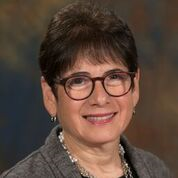 Dr. Fornari is the Associate Dean of Educational Skills Development, Zucker SOM (ZSOM) at ZSOM and is the Vice President of Faculty Development for the 23 hospitals of the Northwell Health organization. Her faculty development role at both institutions is designed to align the UME, GME and CPD continuum. Serving in these roles for the past 10 years allows her to bring UME curricular innovations to the GME programs and recruit educators from GME to participate in faculty development and teaching at the School of Medicine. She is co-editor of the IAMSE publication “How to Guide for Active Learning” produced by the IAMSE Publications Committee in 2015. She has developed and implemented longitudinal CPD learning for faculty: “Learning Drives Teaching and Assessment” workshops, an educational research curriculum, “Educational Research Skills Development”, and system-wide “Resident as Teacher” and “Chief Resident” curriculum courses, all of which include interactive didactics and experiential components to assure skill-building is occurring in real-time. Dr. Fornari is actively engaged in obtaining external funding and implementing novel programs to transform medical education across the continuum. In 2014, Dr. Fornari was awarded a 2-year grant, Mentoring and Professionalism in Training (MAP-IT), funded by the Arnold P. Gold Foundation that focused on developing mentoring skills in clinicians to achieve humanistic relationships with trainees, colleagues and ultimately patients across the continuum of medical education. In 2015 the Department of Internal Medicine was awarded a 5-year HRSA Primary Care Training and Education grant, Improving Patient Access and Care Through Training (IMPACcT). Dr. Fornari is Co-Principle Investigator on this grant and has oversight of implementation of grant activities which seek to transform delivery of education to students and residents in ambulatory clinical care environments and impacting care delivered in those settings. All of her grant funded projects have had sustainability beyond the funding period. National presentations and publications have disseminated the funded educational innovations. Currently she is a peer reviewer for numerous medical education journals, including Medical Science Educator and MedEdPortal. She uses her professional time to mentor numerous colleagues on educational research and how to bring an idea to project fruition and then publication. This mentoring also includes grant writing to seek funds for medical education projects. Dr. Fornari is an inaugural member of the Zucker SOM Academy of Medical Educators (AME) and in her faculty development role is intimately involved in the creation of its mission, landmark activities and message to all faculty at the Northwell Health Organization.
Dr. Fornari is the Associate Dean of Educational Skills Development, Zucker SOM (ZSOM) at ZSOM and is the Vice President of Faculty Development for the 23 hospitals of the Northwell Health organization. Her faculty development role at both institutions is designed to align the UME, GME and CPD continuum. Serving in these roles for the past 10 years allows her to bring UME curricular innovations to the GME programs and recruit educators from GME to participate in faculty development and teaching at the School of Medicine. She is co-editor of the IAMSE publication “How to Guide for Active Learning” produced by the IAMSE Publications Committee in 2015. She has developed and implemented longitudinal CPD learning for faculty: “Learning Drives Teaching and Assessment” workshops, an educational research curriculum, “Educational Research Skills Development”, and system-wide “Resident as Teacher” and “Chief Resident” curriculum courses, all of which include interactive didactics and experiential components to assure skill-building is occurring in real-time. Dr. Fornari is actively engaged in obtaining external funding and implementing novel programs to transform medical education across the continuum. In 2014, Dr. Fornari was awarded a 2-year grant, Mentoring and Professionalism in Training (MAP-IT), funded by the Arnold P. Gold Foundation that focused on developing mentoring skills in clinicians to achieve humanistic relationships with trainees, colleagues and ultimately patients across the continuum of medical education. In 2015 the Department of Internal Medicine was awarded a 5-year HRSA Primary Care Training and Education grant, Improving Patient Access and Care Through Training (IMPACcT). Dr. Fornari is Co-Principle Investigator on this grant and has oversight of implementation of grant activities which seek to transform delivery of education to students and residents in ambulatory clinical care environments and impacting care delivered in those settings. All of her grant funded projects have had sustainability beyond the funding period. National presentations and publications have disseminated the funded educational innovations. Currently she is a peer reviewer for numerous medical education journals, including Medical Science Educator and MedEdPortal. She uses her professional time to mentor numerous colleagues on educational research and how to bring an idea to project fruition and then publication. This mentoring also includes grant writing to seek funds for medical education projects. Dr. Fornari is an inaugural member of the Zucker SOM Academy of Medical Educators (AME) and in her faculty development role is intimately involved in the creation of its mission, landmark activities and message to all faculty at the Northwell Health Organization.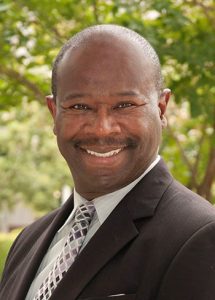 Darin A. Latimore, MD, has been Deputy Dean for Diversity and Inclusion at the Yale School of Medicine (YSM) since January 2017, and is the School of Medicine’s inaugural Chief Diversity Officer.
Darin A. Latimore, MD, has been Deputy Dean for Diversity and Inclusion at the Yale School of Medicine (YSM) since January 2017, and is the School of Medicine’s inaugural Chief Diversity Officer. Dr. Bonny Dickinson is the associate dean for faculty affairs and professor of microbiology and immunology in the department of biomedical sciences at Mercer University School of Medicine. Dr. Dickinson is a member of the IAMSE Board of Directors, an Associate Editor of Medical Science Educator, Chair of the IAMSE Professional Development Committee, and co-chair of CAMSE, the Committee for the Advancement of Medical Science Educators (a subcommittee of the Professional Development Committee). CAMSE created educator and evaluator toolkits to facilitate the documentation and review of educator portfolios for the purposes of appointment, promotion/tenure, or induction into a teaching academy. These toolkits are available as an IAMSE recommended resource on the IAMSE website.
Dr. Bonny Dickinson is the associate dean for faculty affairs and professor of microbiology and immunology in the department of biomedical sciences at Mercer University School of Medicine. Dr. Dickinson is a member of the IAMSE Board of Directors, an Associate Editor of Medical Science Educator, Chair of the IAMSE Professional Development Committee, and co-chair of CAMSE, the Committee for the Advancement of Medical Science Educators (a subcommittee of the Professional Development Committee). CAMSE created educator and evaluator toolkits to facilitate the documentation and review of educator portfolios for the purposes of appointment, promotion/tenure, or induction into a teaching academy. These toolkits are available as an IAMSE recommended resource on the IAMSE website.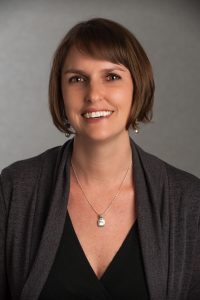
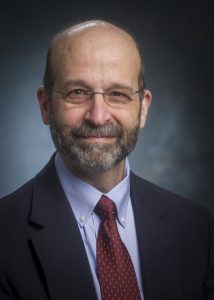 Dr. David A. Rogers is a professor in the Departments of Surgery, with secondary appointments in the Departments of Medical Education and Pediatrics and an adjunct appointment in the Collat School of Business. He has served as the Senior Associate Dean of Faculty Affairs and Professional Development at the School of Medicine since 2012 and in this role serves as the co-director of the UAB Healthcare Leadership Academy. He was named the UAB Medicine Chief Wellness Officer and was appointed to the ProAssurance Chair of Physician Wellness in 2018.
Dr. David A. Rogers is a professor in the Departments of Surgery, with secondary appointments in the Departments of Medical Education and Pediatrics and an adjunct appointment in the Collat School of Business. He has served as the Senior Associate Dean of Faculty Affairs and Professional Development at the School of Medicine since 2012 and in this role serves as the co-director of the UAB Healthcare Leadership Academy. He was named the UAB Medicine Chief Wellness Officer and was appointed to the ProAssurance Chair of Physician Wellness in 2018.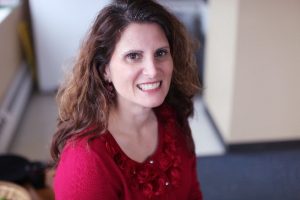 Melissa Klein, MD, MEd is a Professor of Pediatrics at Cincinnati Children’s Hospital Medical Center and the University of Cincinnati College of Medicine. She serves as the Director of the Primary Care Pathway of the Pediatrics Residency Program, the Medical Director of the On-line Masters of Education program, the Director of the Academic Pediatric Association’s Educational Scholars Program and an Associate Editor for Education in Academic Pediatrics. She has a strong passion for caring for children from underserved communities in a primary care setting. As such, she serves as the physician champion for education for the Medical-Legal Partnership, a Board Member of the area’s largest food bank and recently led the endeavor to start an in-clinic pantry for food insecure families seen in the primary care center. Her main educational research interest focuses on creating innovative educational experiences to improve physician performance and impact patient outcomes.
Melissa Klein, MD, MEd is a Professor of Pediatrics at Cincinnati Children’s Hospital Medical Center and the University of Cincinnati College of Medicine. She serves as the Director of the Primary Care Pathway of the Pediatrics Residency Program, the Medical Director of the On-line Masters of Education program, the Director of the Academic Pediatric Association’s Educational Scholars Program and an Associate Editor for Education in Academic Pediatrics. She has a strong passion for caring for children from underserved communities in a primary care setting. As such, she serves as the physician champion for education for the Medical-Legal Partnership, a Board Member of the area’s largest food bank and recently led the endeavor to start an in-clinic pantry for food insecure families seen in the primary care center. Her main educational research interest focuses on creating innovative educational experiences to improve physician performance and impact patient outcomes.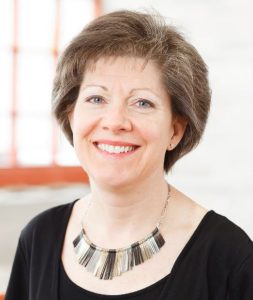 Valerie Dean O’Loughlin, Ph.D., is Professor of Anatomy and Assistant Director of Undergraduate Education at Indiana University School of Medicine – Bloomington (IUSM-B). She teaches anatomy, a pedagogical methods course, and mentors PhD students pursuing medical education research. Her research interests are in anatomy education and teaching assistant pedagogical development, and she utilizes both quantitative and qualitative methods for her education research. She was the recipient of the 2014 Scholar Educator award from the Indiana University School of Medicine, which recognizes a single faculty member who approaches teaching through a scholarly lens. Valerie is coauthor of two textbooks: McKinley/O’Loughlin/Pennefather-O’Brien: Human Anatomy, 6th edition and McKinley/O’Loughlin/Bidle: Anatomy & Physiology: An Integrative Approach, 3rd edition
Valerie Dean O’Loughlin, Ph.D., is Professor of Anatomy and Assistant Director of Undergraduate Education at Indiana University School of Medicine – Bloomington (IUSM-B). She teaches anatomy, a pedagogical methods course, and mentors PhD students pursuing medical education research. Her research interests are in anatomy education and teaching assistant pedagogical development, and she utilizes both quantitative and qualitative methods for her education research. She was the recipient of the 2014 Scholar Educator award from the Indiana University School of Medicine, which recognizes a single faculty member who approaches teaching through a scholarly lens. Valerie is coauthor of two textbooks: McKinley/O’Loughlin/Pennefather-O’Brien: Human Anatomy, 6th edition and McKinley/O’Loughlin/Bidle: Anatomy & Physiology: An Integrative Approach, 3rd edition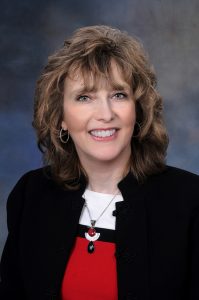 Teri L Turner is professor and Martin I Lorin, M.D., Endowed Chair in Medical Education, Department of Pediatrics at Baylor College of Medicine, and director, Center for Research, Innovation, and Scholarship in Medical Education, Texas Children’s Hospital, Houston, Texas. She was part of the national Student as Teacher Delphi group that defined curricular priorities for student-as-teacher programs and she currently mentors the Academy of Distinguished Resident Educators in the Department of Pediatrics at Baylor College of Medicine. Dr. Turner has mentored resident educators in the development of both a teaching portfolio and a required month long teaching rotation (Supervising and Teaching as Residents with Safety) that both received the ACGME David C. Leach Award for educational innovation. She is the first author of the Clinician-Educator’s Handbook, designed to aid clinicians in their day-to-day teaching duties. At her core, Dr. Turner is fervent about helping others succeed in their roles as teachers and educational scholars.
Teri L Turner is professor and Martin I Lorin, M.D., Endowed Chair in Medical Education, Department of Pediatrics at Baylor College of Medicine, and director, Center for Research, Innovation, and Scholarship in Medical Education, Texas Children’s Hospital, Houston, Texas. She was part of the national Student as Teacher Delphi group that defined curricular priorities for student-as-teacher programs and she currently mentors the Academy of Distinguished Resident Educators in the Department of Pediatrics at Baylor College of Medicine. Dr. Turner has mentored resident educators in the development of both a teaching portfolio and a required month long teaching rotation (Supervising and Teaching as Residents with Safety) that both received the ACGME David C. Leach Award for educational innovation. She is the first author of the Clinician-Educator’s Handbook, designed to aid clinicians in their day-to-day teaching duties. At her core, Dr. Turner is fervent about helping others succeed in their roles as teachers and educational scholars.